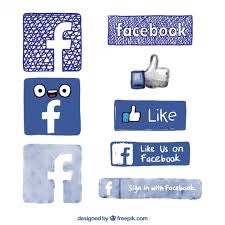
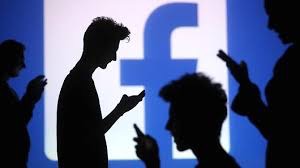
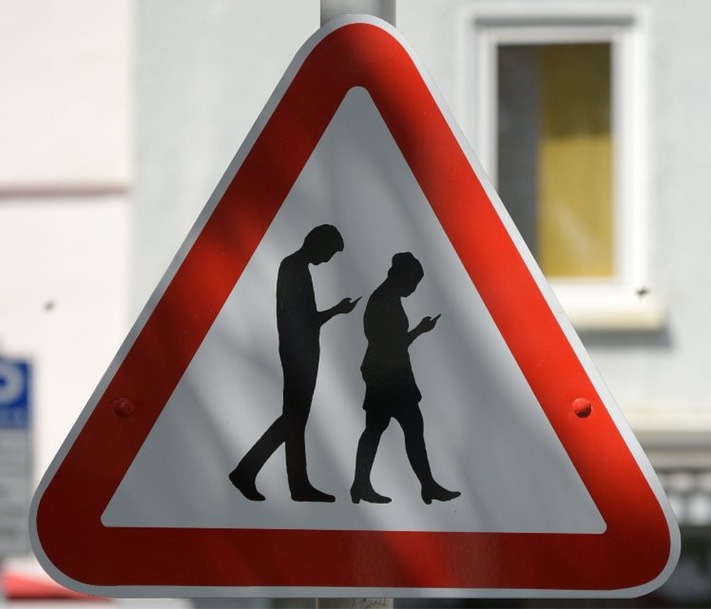
50% of 18-24 year-olds go on Facebook when they wake up. (Source: The Social Skinny)

From the 
Endless Facebook feed scrolling affects our brain in a similar way to taking cocaine, new research suggests.
Facebook addiction may show up in brain scans of those who can’t stay off the site, affecting our grey matter in a similar way that cocaine does, academics have found.
“The impulsive system can be thought of as a car’s accelerator, while the inhibitory system can be likened to a brake,” explained Professor Ofir Turel of California State University.
“In addictions, there is very strong acceleration associated with the impulsive system often coupled with a malfunctioning inhibitory system.”

Cocaine: highly addictive Photo: Steve Parsons/PA
Undergraduates were asked to fill out a questionnaire assessing how addicted they were to the Mark Zuckerberg social network, according to the study published in Psychological Reports: Disability and Trauma.
They were then shown a series of images, some related to Facebook, and asked to press a button when they appeared.
Those who hit the button quickly when they saw Facebook images also scored highly in the earlier addiction test.
Researchers found the Facebook triggers activated the amygdala, which helps establish the significance of events and emotions, and the striatum, which is involved in the processing and anticipation of rewards.
Some of the participants responded to Facebook stimuli faster than they did to road signs.
“This is scary when you think about it, since it means that users might respond to a Facebook message on their mobile device before reacting to traffic conditions if they are using technology while on the road,” Turel explained.
However, researchers found the impulsive systems in the brain worked OK for compulsive Facebook users during the monitoring period, unlike in drugs addicts, Livescience reports.
“This is good news, since it means that the behaviour can be corrected with treatment. We speculate that addictive behaviour in this case stems from low motivation to control the behaviour, which is due partly to the relatively benign societal and personal consequences of technology overuse, compared to, say, substance abuse,” Tural said.
2004 Mark Zuckerberg creates Facebook in his Harvard dorm room
2006 Facebook allows anyone over 13 to join, introduces the news feed
2007 Sells a 1.6% stake to Microsoft for $240m
2008 Reaches 100 million users
2009 Introduces "like" button
2010 Facebook becomes profitable
2012 Acquires Instagram for $1bn in cash and stock
2012 Reaches one billion users
2013 After speculation about a Facebook phone
2014 Buys messaging app WhatsApp for $19bn
2015 Extends internet.org effort to provide internet access to rest of world
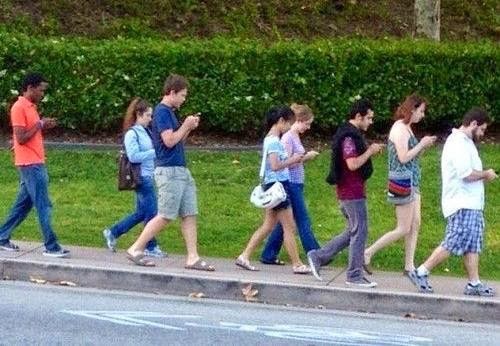


Also from 
Facebook and Twitter 'more addictive than tobacco and
alcohol'
Resisting the urge to check social networking sites for updates is more difficult than turning down a drink, according to a study of people's everyday desires.
The survey of 250 people found that sleep and sex were the two things people most longed for during the day, but that the urges to keep on top of social networks and work were the hardest to resist.
In contrast alcohol and tobacco prompted much lower levels of desire despite their reputation for being addictive.
Researchers from the University of Chicago Booth School of Business in America fitted participants with devices which logged nearly 8,000 reports about people's everyday desires.
They found that having resisted a particular urge frequently or recently raises the chance of caving in the next time….
Twitter and Facebook 'addicts' suffer withdrawal symptoms
Facebook and Twitter users suffered withdrawal symptoms when forced to go cold turkey as part of a scientific study into the addictiveness of social media, academics have found.
In a study by researchers at the University of Winchester, ten self-confessed Facebook “addicts” and ten prolific tweeters were asked to stop using their accounts for four weeks. Many quickly became isolated from friends and family and reported feeling "cut off from the world".
One female participant from Yorkshire said: “So much of my life was organised via Facebook. I haven’t communicated with my family all week.”
Another volunteer said: “I’ve felt alone and cut off from the world. My fingers seem to be programmed to seek out the Facebook app every time I pick up my phone.”…
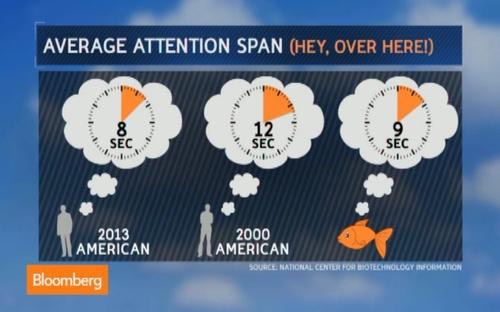
From 
25 February 2016, By Alyssa Navarro Tech Times
Facebook Addiction Affects Brain Like Cocaine, Gambling: Study
Scrolling through your Facebook feed may seem harmless, but a new study in California suggests that when you do so, your brain reacts in a similar way to that of people who use cocaine and are addicted to gambling.
Past studies have already compared brain functions of people obsessed with the Internet to changes in the brain that occur to gamblers and alcoholics. Now, a research team from California State University, Fullerton provides further proof.
The team says obsession to social media may lead something akin to classical addiction. Apparently, social media use triggers two parts of the brain that are responsible for the reward system: the amygdala and the striatum.
The striatum is a critical part of the forebrain, while the amygdala is an integrative region for behavior, emotions and motivation.
In the new study issued in the journal Psychological Reports: Disability and Trauma, researchers asked 20 undergraduates to complete a questionnaire that assesses how addicted they are to social media sites, particularly Facebook. It involved questions that examined symptoms such as withdrawal, conflict and anxiety which are markers of addiction.
Another test required the participants to respond to a series of photos. Some are random images, some are related to Facebook.
Those who quickly responded to Facebook-related photos were found to also score high on the addiction questionnaire. This indicates that at the examined levels of addiction-like symptoms, social media obsession shares some neural features with gambling and substance addictions.
Unlike cocaine addicts, Facebook users displayed no negative effects of brain systems responsible for inhibition. But some of the participants responded faster to Facebook images than they did to road signs.
"This is scary when you think about it," said Ofir Turel, professor at California State. "It means that users might respond to a Facebook message on their mobile device before reacting to traffic conditions if they are using technology while on the road."
From ![]()
The True Costs of Facebook Addiction:
Low Self-Esteem And Poor Body Image
In case we didn’t quite grasp the vastness of social media’s power over us, two new studies help hammer the point home. Facebook has some decided benefits, but it can also, apparently, mess with our minds, drawing us into dependence and luring us to make unhealthy comparisons between ourselves and others. Though some of the studies’ findings seem almost humorous in their obviousness, others point to a darker phenomenon.
One new study found that the social media monster has – you’ll never see this coming – addictive qualities. This won’t surprise most users, but it’s helpful to have a scientific study to show it. The vast majority (85%) of the 1,000 people polled said they used Facebook as part of their regular routines. About a third said they used Facebook to stay on top of things and two-thirds admitted they used it to kill time. One quarter said they felt “ill at ease” if they can’t log in regularly. Sounds a lot like withdrawal.
More interesting was that women spent about 30% more time on Facebook than men, and they were more likely to post updates about emotions and relationships than men were. The most avid female Facebook users were also more likely to be unhappier and less content with their lives than others.
That Facebook is addicting is not surprising, but the part that’s more revealing, psychologically speaking, is that the more women “used,” the less happy they tended to be. Given the unique relationship that women have with addictive behaviors, this is not something to cast aside.
In fact, another new study found that Facebook may add to the body image issues that people, especially young women and girls, grapple with. Just over half of the study’s 600 participants said that looking at photos on Facebook added to their body-consciousness, and the same number said they compare themselves to others when they view photos or status updates. Just under half said that when looking at Facebook friends’ photos, they wished they had the same body or weight the person pictured.
A third also said they actually felt sad when they compared their own photos to those of their friends, and half said that the Timeline feature actually made it easier to compare changes in their body weight and size across time.
“Facebook is making it easier for people to spend more time and energy criticizing their own bodies and wishing they looked like someone else,” said Dr. Harry Brandt, director of The Center for Eating Disorders at Sheppard Pratt, which conducted the study. “In this age of modern technology and constant access to SmartPhones and the internet, it’s becoming increasingly difficult for people to remove themselves from images and other triggers that promote negative body image, low self-esteem and may ultimately contribute to eating disorders.”
This might suggest that Facebook may be doing what fashion magazines have long been criticized for: offering an avenue for young people to compare themselves to others. The difference here is that many times it’s among friends and acquaintances, rather than models. Earlier work found that the more time young women (12-19) spend on Facebook, the more likely they are to develop an eating disorder, including anorexia, bulimia, and intense dieting. More avid Facebook users were also more likely to have negative feelings about their bodies and physical dissatisfaction.
Since social media isn't going anywhere, it might be time for us to adjust our relationship to it, and arrive at a better balance.
How’s your relationship with Facebook? Do you find yourself hooked? Do its pros outweigh its cons?
Also from ![]()
Facebook Secretly Tested Users' Apps Addiction
Facebook conducted secret tests to determine the magnitude of its Android users’ Facebook addiction, according to a new report published yesterday. Like a bunch of crash test dummies, users of the Facebook app for Android were (several years ago) subject to intentional Facebook for Android app crashes without being informed of the tests.

Facebook Users as Crash Test Dummies: Facebook secretly testing user resilience to intentional Android app crashes.
These tests were reportedly conducted so Facebook could determine user resilience to app deprivation--that is, whether users would find ways to use Facebook on their Android devices without the Google Play store app, such as finding the app elsewhere or simply accessing Facebook via their browsers.
Given that Facebook reportedly has a billion users on Android, there is substantial motivation for Facebook to tests its app independence from Google. Facebook is apparently also testing the waters for its own app store.
Secretly testing user behavior
In the article “Facebook’s Android Contingency Planning,” published yesterday in The Information, Facebook has been “testing how addicted Android phone users are to Facebook apps and making sure they can quickly download them directly from Facebook rather than through Google Play.” The Information reports based on information from one person familiar with the experiment that “Facebook secretly introduc[ed] artificial errors that would automatically crash the app for hours at a time.” The reported purpose of this and related tests was to “prepar[e] for the eventuality that it leaves the Google Play app store.”
Déjà vu
As most readers will recall as it was heavily reported, in June 2014 Facebook was secretly testing user emotional responses to Facebook content by manipulating user newsfeeds. Fallout from this testing was swift and widespread, with Facebook issuing a sort of mea culpa, one of the test’s designers issuing an apology to users affected by the tests, and Cornell University, partner in the test, releasing a statement regarding its involvement in the test (and how and why it did not obtain ethics review board/approval for the tests).
As of July 2014, there were at least ten reported Facebook experiments on users conducted without user knowledge.
From 
Addicted to Facebook?
Study shows users are lonelier
It turns out that as many as one in every three people who use social media like Facebook
experience feelings of jealousy and envy after spending time on these sites, according to a new study.
With the growing use of social media as the norm for how we communicate, there is increasing evidence and suggestion that there may be a correlation between how often one uses social media and a linkage to mental health issues. The fact that a significant percentage of people check Facebook even before they get out of bed is an indication of the social anxieties and pressures that have been created by this new medium.
The study revealed that significant emotional damage was experienced by users who were looking at positive posts and posts of Facebook friends who were smiling and looking happy. In some respects, Facebook has become the place for people to flaunt their successes. When was the last time you saw anyone post something bad or embarrassing that happened to them?
In fact, researchers have found vacation photos caused the highest level of resentment among Facebook users who reported to experience a high amount of envy. In a world already flooded with social pressures where teenagers and young adults are attempting to find their true identity and not be judged, Facebook has created a new standard of social acceptance. Social interaction has been rated as the second most common cause of envy especially when users compare how many likes or comments were made on their photos and postings.
For individuals in their mid-30s and 40s Facebook envy was most often experienced by women looking at postings or photographs related to family happiness or physical attractiveness. If anybody watched the "The Social Network," it is clear the underlying contention by which Facebook was created – a means for rating girls at Harvard – still remains a strong current for social mediums. If we step back for a moment, one has to ask themselves when the norm for social acceptance was based on quantity versus quality.
The recent German study is not the first to study the social effects of Facebook. In fact, a study published in December 2012 found the more time college students spent on Facebook, the worse they felt about their own lives Some may argue that Facebook is efficient in disbursing virtual empathy since people feel good when a lot of people wish them on their birthday. The reality of course, is that the numbers game of “likes” is creating a compulsion or addiction.
Facebook is an addiction when one finds constant pleasure from the experience. Facebook is a compulsion if it creates an anxiety when one is not online. It would be interesting to evaluate through a functional MRI if there are new parts of the brain that light up as we get more likes and acceptance on Facebook and whether they are the same areas that light up when we satisfy our craving for food, sex or drugs.
The reality is that Facebook is not going anywhere anytime soon, and we as a race expect instant gratification in everything that we do including Facebook. The impact of anxiety and mental health issues in the American population and even worldwide are mounting, and one cannot underestimate the impact of social media in exacerbating circumstances that lead to anxiety and depression.
A few good questions for people to ask themselves about whether they are addictive to Facebook or not include:
1. Have you tried to shut off your Facebook account and went right back to it?
2. Do you find yourself less productive in your work or studies?
3. Do you use Facebook as an escape for relaxation and pleasure?
4. Do you find yourself constantly checking how many people like your posts?
If the answer to any of these questions is yes..you might have a Facebook compulsion or addiction.
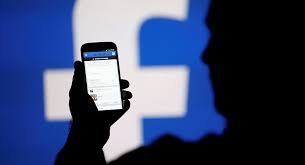
7 Telltale Signs of Facebook Addiction
From Hongkiat.com Michael Poh,
Facebook has become so much a part of our life now that it’s so prevalent across the
world. With close to a billion users out there, one can easily throw a stone and hit a
Facebook user. The amount of time users engage in Facebook activities, like updating
statuses, posting photos , commenting and ‘liking’ posts has also been increasing with
smartphones and 3G/Wi-fi networks becoming commonplace in recent years.
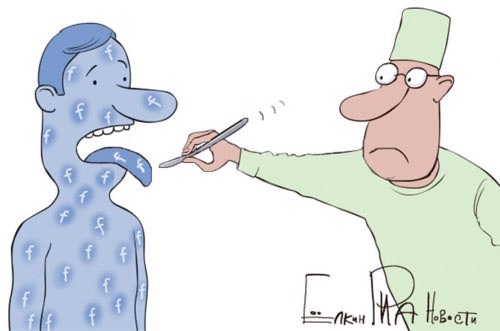
(Image Source: Voices from Russia)
Given the accessibility and ease of use of Facebook whenever and wherever you are, it’s
no wonder more and more people are addicted to the popular social networking site. You
may ask, what’s wrong if you use Facebook frequently as a means of entertainment, or
as a means to relieve your stress? Well, there’s nothing wrong. However, when Facebook
activities start interfering with your everyday life and become detrimental to your daily
functioning at work or in school, you might have a problem.
Here are some telltale signs of Facebook addiction you should take note of.
1. Over-sharing
At a time when many netizens are concern over the issue of privacy online, it’s strange
to find that there are still a number of us who voluntarily share our deepest secrets
about our intimate lives on Facebook. It has perhaps a lot to do with the gratification of
being acknowledged or approved by our peers. As I’ve mentioned in an earlier article,
The Psychology of Facebook, such social affirmations by our friends in our network is a
key draw of social networking sites.
There’s no basis for me to say that sharing about ourselves is wrong, because each of us
have our own social needs to fulfill. It’s what makes us humans. What I’m talking about
here is the idea of over-sharing, of saying too much and then regretting what we said.
When we’re addicted to something, we’ll do anything just to get a satisfying dose of
engagement in the activity. So in the case of Facebook addiction, we may become unable
to judge what’s appropriate to share, allowing our desire to be heard to override our
privacy concerns.
2. Checking Your Facebook Whenever Possible
This means checking out for any updates to your newsfeed or responses to your posts
every time you don’t know what to do. In other words, the default choice for your
freetime activity is to be on Facebook. So what do you do? You leave your Facebook open
in the background, switching between work or assignments to the page every few
minutes. Even when you are outside enjoying a drink with a friend, you log in to the
Facebook app on your smartphone every now and then during brief moments of non-
interactions.
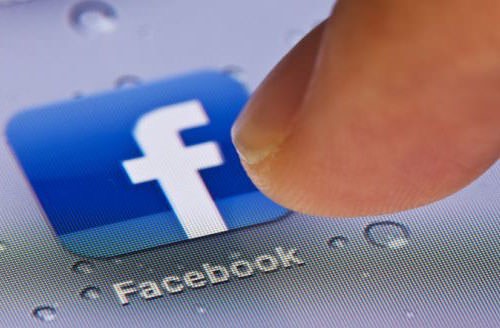
(Image Source: tecca)
The end result is that you get distracted in whatever it is you’re doing and you may find
it hard to be fully present at the moment. Perhaps you may take a significantly longer
amount of time to complete simple tasks or maybe some of your friends may complain
that you don’t pay enough attention to what they say. No surprises there, seeing how
your attention is always diverted to some Facebook notifications.
3. Overly Concerned with Facebook Image
Have you ever spent more than fifteen minutes of your time thinking about what you
ought to type for your status update? After you’ve decided on what you should update
and posted it, do you eagerly anticipate how others will respond to it? This is what it
means when I mention your ‘Facebook image’. To some extent, we are all concerned over
how we project ourselves to the rest of the world, even when it comes to our online
presence.
Some of us though, may have been spending too much time managing a friend’s
impression of them. It gets out of hand when you’re always trying to think of something
cool, humorous, entertaining, etc to post just to show how awesome a guy or gal you are.
After which, you get restless while you wait for others to comment or ‘like’ what you’ve
posted and so you just keep checking and re-checking your Facebook to see if there’re
any new notifications.

4. Reporting On Facebook
Most of us have seen friends in our network who almost certainly never fail to appear on
our newsfeed each time we log on to Facebook. It could be some status update, check-in,
posting of their photos and such. Their posts tend to be on very mundane matters, much
like how someone reports to another what he or she is doing at any given moment. They
report to you their daily routines (e.g. taking a piss), broadcast check-ins to
uninteresting places like the street they live in, upload self-portraits and such.
 (Image Source: Telegraphe)
(Image Source: Telegraphe)
It appears to be an attempt to remind others that they exist. Either that or these people
are just trying to make their offline life co-existing with their Facebook one. If you are
one of these people, I think it’s good to ask yourself the reason behind such ‘reporting’.
To me, it seems to be a sign of obsession, as if you need to post something, no matter
how ordinary or unimaginative, in order to relieve your anxiety of not doing so.
5. Spending Hours Browsing Through Facebook Every Day
Spending about an hour or so daily looking through your newsfeeds and checking out
profiles of your friends is still okay, but if it starts going beyond that, it’s an indicator of
a problem. Sure, there’s loads of content on Facebook like photos, games and other
interesting apps, but if you start using increasingly more of your valuable waking hours
surfing aimlessly on Facebook, it’s time to reexamine your lifestyle.
6. Mad rush to add more friends
For some users, Facebook addiction may manifest itself as an intense desire to add more
friends. There is a perceived ‘arms race’ between you and your other friends to see who
has the highest number of friends on their network. The keyword here is ‘perceived’,
because you may think there’s a competition but in fact there might be none (i.e. your
friends could not care less about whether they have more or fewer friends than you). The
contention on who has more friends may just be your personal quest to be seen as more
‘popular’.
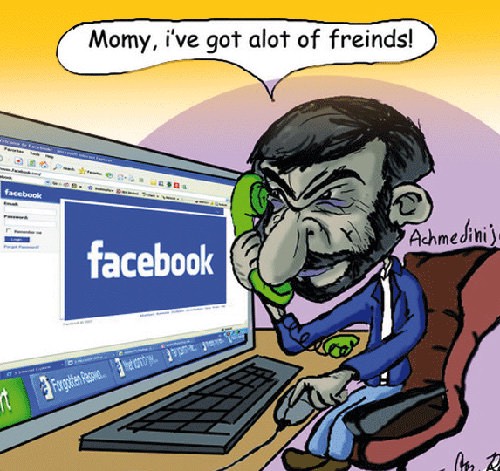
Interestingly, a research done by psychologists from Edinburgh Napier University found
that Facebook users with more friends on their network tend to be more stressed up
when using Facebook. The more friends you have, the more you feel pressured to
maintain appropriate etiquette for different types of friends while remaining
entertaining. In other words, the competition in adding friends may result in a vicious
cycle of increasing Facebook-related tensions, resulting in worse addiction outcomes.
7. Compromising offline social life
As you get used to communicating on Facebook via messaging, sharing photos and
posts, commenting and ‘liking’ others etc, it may come to a point when you get more
comfortable socializing online than offline. You become over-reliant on Facebook to
fulfill your social needs and may start sacrificing the time spent on real-life meet-ups for
coffee with your friends.
That’s not healthy. Let’s face it, face-to-face communication is a far richer experience
than communicating online where one cannot actually see non-verbal communication
as in the body language, gestures, voice tones, etc. It’s not surprising that text messages
often get misinterpreted, resulting in misunderstandings. In the long run, your social life
suffers because your communication is limited to Facebook and not with a real-life friend.
Overcoming Facebook Addictions
Looking back at the signs and symptoms of Facebook addictions I [the author] realize I
am by no means immune to it. Over-sharing? Check. Refreshing my Facebook newsfeed
whenever I have the chance? Check. The only consolation I have for myself is that I
don’t do that on a regular basis; I simply fall in to the trap every once in a while. That’s
not considered an addiction… I hope(?). I’ve read a number of articles that offer tips on
how one can overcome Facebook addiction, and most of these offer precise step-by-step
solutions on how to address your issue.
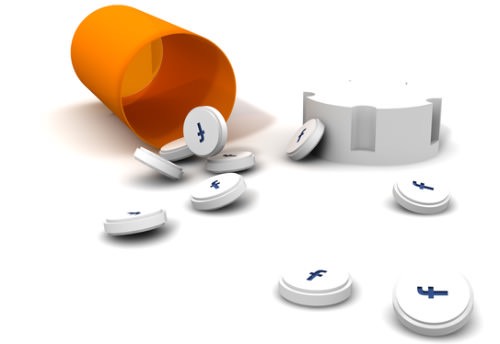
Tips like first admitting you have a problem, setting aside a fixed time to check your
Facebook, turning off notifications, etc are all legitimate. However, it might be more
effective if we deal with the root of the addiction problem by finding out why you are
depending on Facebook so much.
Is it because you’re using Facebook to avoid dealing with some things, such as your work
or personal issues at home? Once you know what the underlying issue is, you’ll be more
confident to manage your addiction. If there’s none to be found, then maybe it has to do
with habit. Put Facebook away for awhile, go out and experience the offline world by
interacting with your friends face-to-face. You’ll realize how much more wonderful that
is than to stare at your newsfeed all day long. That’s when change can begin.

Facebook Founder Warns "God Only Knows What It's Doing To Kids' Brains”
November 2017
38-year-old founding president of Facebook, Sean Parker, was uncharacteristically frank about his creation in an interview with Axios. So much so in fact that he concluded, Mark Zuckerberg will probably block his account after reading this.

Confirming every ‘big brother' conspiracy there is about the social media giant, Parker explained how social networks purposely hook users and potentially hurt our brains...
"When Facebook was getting going, I had these people who would come up to me and they would say, 'I'm not on social media.' And I would say, 'OK. You know, you will be.' And then they would say, 'No, no, no. I value my real-life interactions. I value the moment. I value presence. I value intimacy.' And I would say, ... 'We'll get you eventually.'"
"I don't know if I really understood the consequences of what I was saying, because [of] the unintended consequences of a network when it grows to a billion or 2 billion people and ... it literally changes your relationship with society, with each other ... It probably interferes with productivity in weird ways. God only knows what it's doing to our children's brains."
"The thought process that went into building these applications, Facebook being the first of them, ... was all about: 'How do we consume as much of your time and conscious attention as possible?'"
"And that means that we need to sort of give you a little dopamine hit every once in a while, because someone liked or commented on a photo or a post or whatever. And that's going to get you to contribute more content, and that's going to get you ... more likes and comments."
"It's a social-validation feedback loop ... exactly the kind of thing that a hacker like myself would come up with, because you're exploiting a vulnerability in human psychology.”
Webmaster note: These are secular articles and are offering only limited secular options.
Please note there is a Higher Power that give you victory if you will just ask and strive for it.
There is power - and victory - in prayer. Just ask.
Facebook appears to almost present the opposite of Paul’s statement “…I die daily”
1 Corinthians 15:31

"There was a day when I died; died to self, my opinions, preferences, tastes and will; died to the world, its approval or censure; died to the approval or blame even of my brethren or friends; and since then I have studied only to show myself approved unto God.” George Muller
"The greatest burden we have to bear in this life is self. Unless we learn in the school of Christ to be meek and lowly, we shall miss precious opportunities and privileges for becoming acquainted with Jesus. Self is the most difficult thing we have to manage. In laying off burdens, let us not forget to lay self at the feet of Christ.” EGW In Heavenly Places, p. 107
There hath no temptation taken you but such as is common to man: but God is
faithful, who will not suffer you to be tempted above that ye are able; but will
with the temptation also make a way to escape, that ye may be able to bear it.
1 Corinthians 10:13
“We can receive of heaven's light only as we are willing to be emptied of self.” EGW Desire of Ages, 181